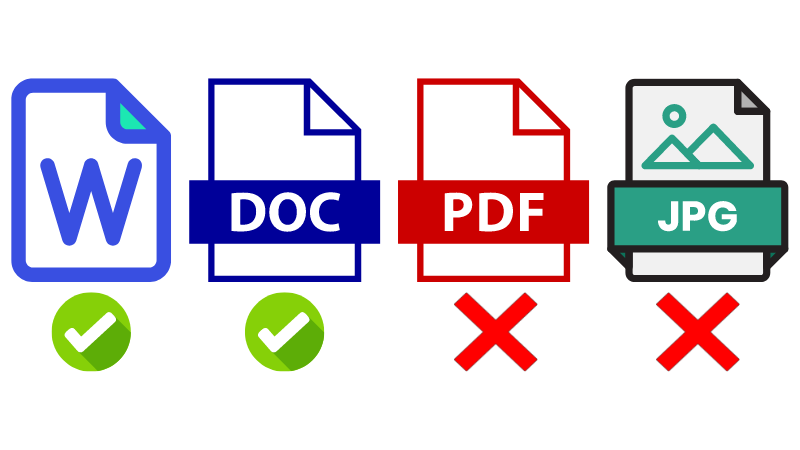Optimizing your CV/Resume for ATS
- debdut pramanick
- Jul 6, 2024
- 3 min read
Looking for a job? Sending out your CV/Resume to apply for suitable roles but not getting calls? Well, you may have a problem there since your CV may not even be getting read by a human. Companies and recruitment agencies are increasingly using ATS or Applicant Tracking Software to do the first level of screening.

This is especially true for in-demand job locations like Dubai and UAE, Kingdom of Saudi Arabia (KSA), Qatar, Oman and other places in the GCC. Job postings in these locations receive thousands of applications from all over the world. So an ATS software is used to screen out over 95% of CVs that the system deems irrelevant.
Applicant Tracking Software (ATS) is a type of software designed to streamline and automate the recruitment process. It is used by employers, recruiters, and hiring managers to manage job applications, track candidates, and efficiently filter through a large volume of resumes.
Getting your resume past an ATS (Applicant Tracking Software) is crucial to increase your chances of getting noticed by recruiters and securing a job interview. Here are some tips to optimize your resume for ATS compatibility:
Use ATS-friendly formatting
Stick to a clean and simple resume format. Avoid using tables, images, or fancy designs that can confuse the software. Remember, ATS cannot read images. Use standard fonts (such as Arial, Times New Roman, or Calibri) and a font size between 10 and 12 points.

Choose the right file format
Save your resume as a Word document (.doc or .docx) or a plain text file (.txt) to ensure compatibility with most ATS systems. Avoid using PDF or image formats as they may not be readable by some software.
Optimize your headings and sections
ATS software automatically extracts and organizes relevant information from resumes, such as contact details, work experience, education, skills, and qualifications. Clearly label each section of your resume. Use standard section headings like "Work Experience," "Education," and "Skills" to make it easier for the ATS to identify and categorize information correctly. Avoid creative headings that might confuse the software.

Incorporate relevant keywords
ATS software scans and filters resumes based on specific criteria set by the employer. This screening process includes keyword matching, where the software looks for specific keywords and phrases related to the job requirements. Resumes that match the criteria are given a higher ranking and are more likely to be reviewed by recruiters. Tailor your resume for each application to include relevant keywords and phrases found in the job description. ATS systems typically scan for these keywords to identify qualified candidates. However, avoid keyword stuffing and maintain a natural flow of content.
Customize your resume for each application
Adapt your resume to align with the specific job requirements of each position you apply for. Highlight relevant skills, experiences, and keywords to increase the chances of getting through the ATS.
Include relevant and specific accomplishments
Instead of listing generic job responsibilities, emphasize your specific achievements and measurable results. Quantify your accomplishments with numbers or percentages where possible. This can help your resume stand out to both the ATS and human recruiters.
Avoid using abbreviations and acronyms
Spell out acronyms and abbreviations, especially those specific to your industry, to ensure the ATS understands your qualifications and experience.
Proofread and optimize for readability
Ensure your resume is free of spelling and grammar errors. Use standard headings, bullet points, and clear, concise sentences to enhance readability. There are now multiple tools that can help you check grammar and the scannability of your resume. Use them before you upload. ATS systems prefer well-structured, scannable resumes.
Test your resume
Before submitting your resume, use ATS-compatible software or online tools to scan and evaluate its compatibility. This can help identify potential issues and ensure your resume is optimized for ATS screening.
Conclusion
With the growing popularity and increasing usage of AI technology, it is highly likely that ATS systems will only get smarter and more closely mimic human cognition. But these basic tips should still hold you in good stead.

Remember, while optimizing your resume for ATS is essential, it's equally important to create a compelling and well-crafted document that appeals to human recruiters once it gets through the system. Balance your resume optimization efforts with creating a resume that effectively showcases your skills, experiences, and qualifications. It is a bit like SEO. You need the system to get your CV read by a human, but if the human can’t read it, all the efforts of optimizing for the system goes to waste. So maintain the balance.







Comments